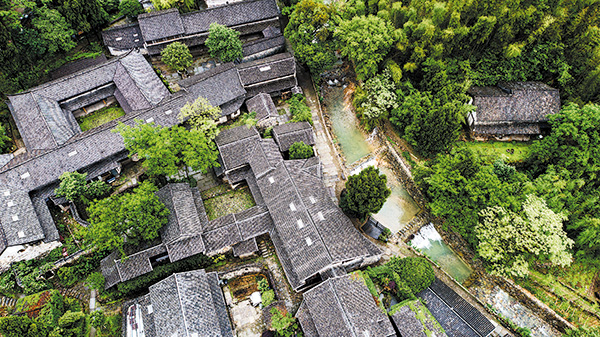

An aerial view of Huangyan district, Taizhou city, Zhejiang province, known as the hometown of Chinese honey oranges.[Photo provided to China Daily]
Patriotic Chinese poet Qu Yuan from the Warring States Period (475-221 BC) once wrote Ju Song, or Ode to the Orange Tree, praising the grace and beauty of an orange tree in southern China.
This literary masterpiece shows Chinese people's pursuit of beauty and virtue, and cements the symbolic significance of oranges in classical Chinese literature.
More than two millennia later, a group of contemporary poets and writers visited Huangyan district in Taizhou, East China's Zhejiang province, widely hailed as the hometown of Chinese honey oranges.
Amid the large stretch of orange groves there, they retraced the literary heritage of ancient literati who celebrated the allure of the scented fruit.
With an enriched vocabulary and refined sentence structure, these modern-day literati continue the tradition of poetic adulation for this cherished symbol of beauty and good fortune.
A poetry recitation, singing, and dance performance centered around promoting orange culture took place on the night of May 5 at an orange production base in Huangyan, where the luminous moonbeams caress the water of Yongning River, serenaded by the soothing melody of croaking frogs in the orange groves. The aroma of orange flowers intermingles with the moist air of the coastal area, giving rise to a poetic ambience. Together, these elements are likely to weave a tapestry of literary inspiration that envelops the senses of those present.